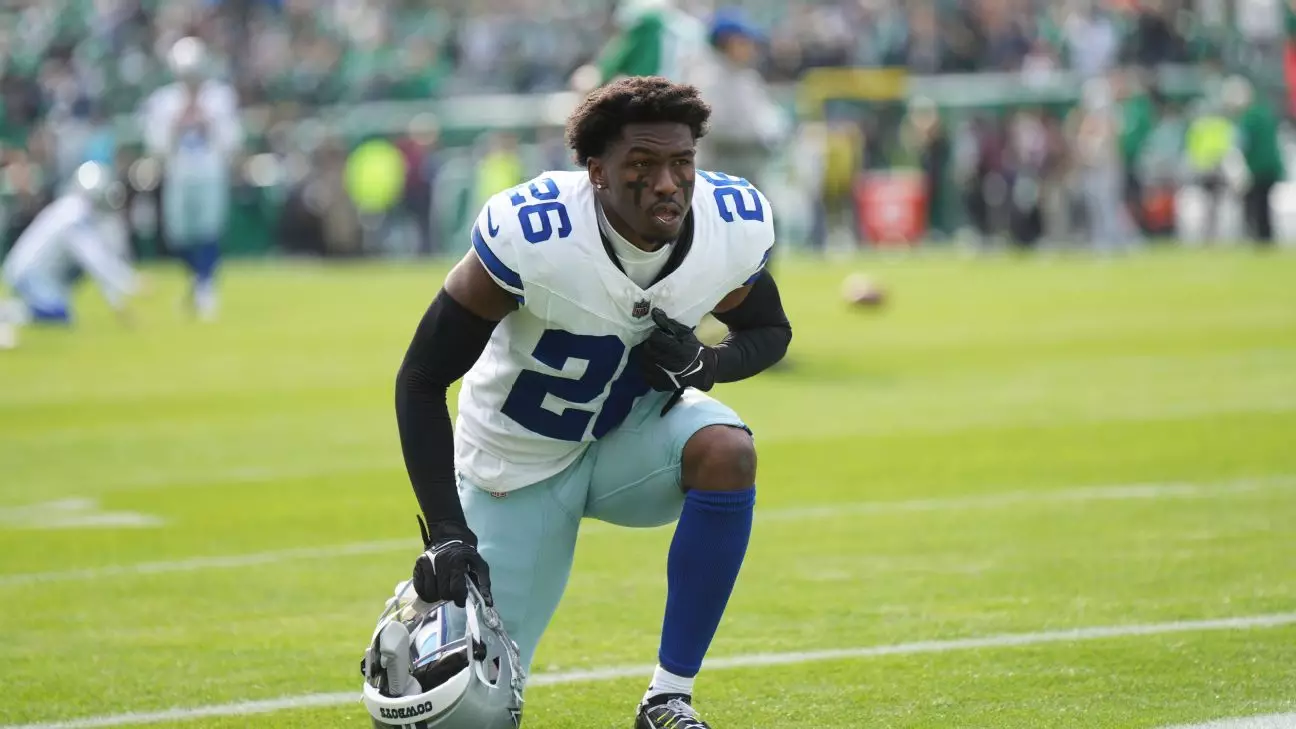As the Dallas Cowboys gear up for the upcoming NFL season, the team stands at a crossroads that could dictate their competitive positioning for years to come. The need for contract extensions for prominent players like Micah Parsons, Tyler Smith, Jake Ferguson, and DaRon Bland looms large, especially given their significant contributions on the field. With a hefty cap space of over $55 million available, the team must balance urgency with strategic foresight in their decision-making. This isn’t merely about acknowledging talent; it’s about securing the future of the franchise.
Key Players at a Crucial Junction
The Cowboys’ focus increasingly seems to hinge on four standout players. Parsons, a once-in-a-generation talent, is entering the final year of his rookie deal, and there’s an innate pressure to secure him long-term. His expected extension isn’t just a nod to his accolades; it would potentially mitigate future salary cap hits. Parsons has explicitly stated his commitment to being a lifelong Cowboy, which might serve as leverage in negotiations.
Tyler Smith’s case is similarly pressing. The Pro Bowl guard has quickly become a foundational piece of the Cowboys’ offensive line, especially in light of the retirement of stalwart Zack Martin. At just 24 years old, Smith’s blend of youthful energy and seasoned resolve positions him as a pivotal figure moving forward. Smith’s dedication to maintain high standards reflects an awareness that he represents more than just himself—he carries the weight of a legacy paved by his predecessors.
In the mix are Ferguson and Bland, both of whom showed electrifying potential in 2023—Ferguson with impressive receiving stats and Bland leading the league in interceptions. However, injuries marred their 2024 seasons, raising doubt about their value and marketability heading into negotiations. The Cowboys must carefully assess not only these players’ previous successes but also their recent struggles and the associated risks that come with investing in them.
Fractured History: Lessons from the Past
Historically, the Cowboys have approached contract extensions with a sense of urgency, extending contracts before players enter free agency. Hall of Famers and franchise legends such as Tony Romo and DeMarcus Ware benefited from proactive agreements during their careers, generating salary cap flexibility through year-over-year restructures. This practice fostered long-term commitments, serving both parties well.
However, in recent years, the approach has appeared vacuous. The protracted negotiations with receiver CeeDee Lamb and quarterback Dak Prescott exemplify how waiting could ultimately inflate costs. Commanding hefty salaries after extended negotiations diminishes the team’s potential for cap management. The Cowboys must refrain from repeating past mistakes if they aim to secure their current talent roster.
Furthermore, the landscape of player contracts has shifted dramatically across the NFL. Recent deals, such as the five-year, $97 million extension for Trevon Diggs and the record-setting agreement for cornerback Derek Stingley Jr., suggest that the cost of retaining elite talent only escalates. If Dallas hesitates too long with Parsons, Smith, Ferguson, and Bland, the organization risks being outpaced—both financially and competitively.
Cap Management and Future Implications
While the allure of landing big-name free agents might tempt the Cowboys, prudent salary cap management will remain the bedrock of their success. Extended contracts for Smith, Ferguson, and Bland could elevate the salary cap figures for 2025 but would not lead to crippling consequences. In contrast, the codependency among these critical extensions becomes evident: securing Parsons’s long-term future could potentially bind their hands in future negotiations.
It’s a high-stakes balancing act that requires an astute understanding of NFL economics. Alongside external demands, internal dynamics also play a critical role—players desire assurance and commitment from the franchise. Establishing a foundation that players can trust will be instrumental in recruiting talent and future signings.
The Path to a Unified Future
The Cowboys’ management must confront the dichotomy of risk versus reward as they navigate contractual decisions. The perfect scenario would see each player extended before the season, but historical trends indicate that such outcomes may be elusive. Instead, a focus on achieving at least two extensions before the season begins could bear significant implications for team morale and cohesion.
Ultimately, the Dallas Cowboys must now rise to the challenge. A decisive and strategic approach toward securing these players’ futures can enable the franchise not only to remain competitive but to assume a dominant presence within the NFC landscape. The clock is ticking. Each passing day increases the urgency—for players, management, and fans alike.


Leave a Reply